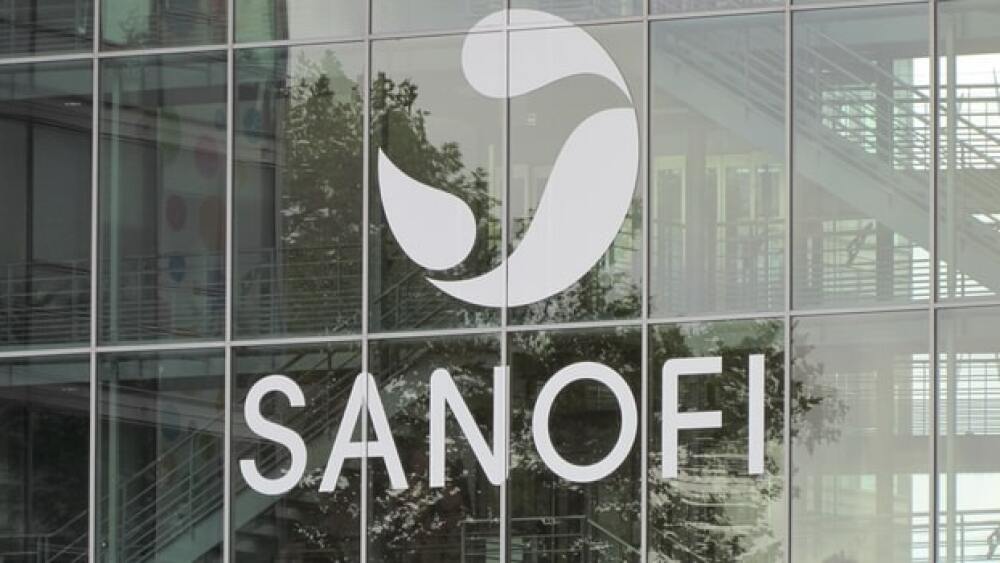Tidal Therapeutics, which does not even have a website, came out of LabCentral in Cambridge. It focuses on developing nanoparticles able to deliver messenger RNA (mRNA) that can reprogram immune cells.
Keitma / Shutterstock
Paris-based Sanofi bought Cambridge, Massachusetts-based Tidal Therapeutics in a deal totaling $470 million. Under the terms of the agreement, Sanofi is making an upfront payment of $160 million with another $310 million in various milestone payments.
Tidal Therapeutics, which does not even have a website, came out of LabCentral in Cambridge. It focuses on developing nanoparticles able to deliver messenger RNA (mRNA) that can reprogram immune cells. The company is working to develop technologies for oncology and immune diseases.
LabCentral is a non-profit company founded in 2013 as a launchpad for life science and biotech startups. The accelerator runs more than 100,000 square feet in Cambridge and on the campus of Harvard University, offering a fully permitted laboratory as well as office space. It was funded partially by two grants from the Massachusetts Life Sciences Center for $5 million each.
Tidal Therapeutics received seed funding from Mission BioCapital, and was joined by RA Capital, New Enterprise Associates, the Myeloma Investment Fund, the Multiple Myeloma Research Foundation’s venture philanthropy, MRL Ventures, and AbbVie Ventures.
Sanofi indicates that Tidal Therapeutics’ technology is able to deliver mRNA “cargos selectively to designated types of cells in the body.” The initial focus is on specific types of immune cells and is engineered to offer similar efficacy to current outside-the-body approaches, such as CAR-T, only inside the body.
In CAR-T, blood is drawn from a patient and sent to a laboratory where the T-cells are isolated. With a neutralized virus, the T-cells are engineered to create receptors on their surface called chimeric antigen receptors (CARs). CARs allow T-cells to recognize and attach to a specific protein or antigen on cancer cells. They are then grown, then reinfused into the patient, where they become a living therapeutic, where they continue to multiply in the patient’s body and attack the cancer.
Tidal Therapeutics’ technology is an attempt, similar to gene therapy or even mRNA vaccines such as the COVID-19 vaccines by Moderna and Pfizer-BioNTech, where the mRNA is delivered into the body where they are incorporated into cells to churn out the desired properties.
“We anticipate that this next generation, off-the-shelf approach has the potential to bring CAR-T cell therapy to a much broader patient population,” said Frank Nestle, Global Head of Research and chief scientific officer at Sanofi. “We believe that the underlying mRNA targeting platform will create disruptive therapeutic approaches across a variety of oncology and autoimmune conditions.”
Sanofi also announced today that they had completed the acquisition of Kymab Group Ltd. That deal was first announced on January 11, 2021. Kymab develops fully human monoclonal antibodies with a particular focus on immune-mediated diseases and immuno-oncology treatments. Sanofi made an upfront payment of about $1.1 billion for the company, with up to $350 million in milestone payments.
As part of that deal, Sanofi picked up Kymab’s KY1005, a fully human monoclonal antibody that binds to OX40-Ligand, which has the potential for a broad range of immune-mediated diseases and inflammatory disorders.
“The Kymab acquisition adds KY1005 to our dynamic pipeline, a potential first-in-class treatment for a range of immune and inflammatory diseases,” said Paul Hudson, Sanofi’s chief executive officer, at the time of the first announcement. “The novel mechanism of action may provide treatment for patients with suboptimal responses to available therapies. We understand from our ongoing work in debilitating immunological diseases how critical it is to find the right treatment for each patient. We look forward to rapidly developing this investigational medicine.”





